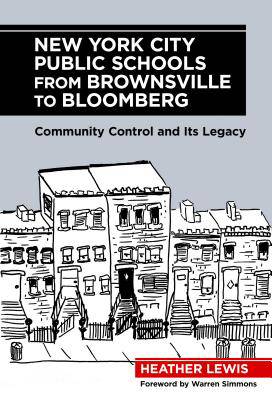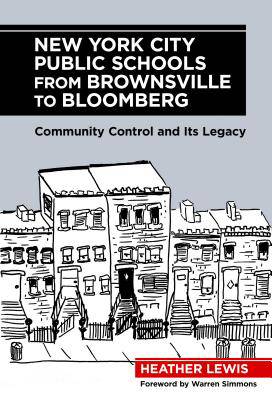
- Afhalen na 1 uur in een winkel met voorraad
- Gratis thuislevering in België vanaf € 30
- Ruim aanbod met 7 miljoen producten
- Afhalen na 1 uur in een winkel met voorraad
- Gratis thuislevering in België vanaf € 30
- Ruim aanbod met 7 miljoen producten
New York City Public Schools from Brownsville to Bloomberg
Community Control and Its Legacy
Heather LewisOmschrijving
When New York City mayor Michael Bloomberg centralized control of the city's schools in 2002, he terminated the city's 32-year experiment with decentralized school control dubbed by the mayor and the media as the "Bad Old Days." Decentralization grew out of the community control movement of the 1960s, which was itself a response to the "bad old days" of central control of a school system that was increasingly segregated and unequal.
In this probing historical account, Heather Lewis draws on new archival sources and oral histories to argue that the community control movement did influence school improvement, particularly in African American and Puerto Rican communities in the 1970s and 80s. Lewis shows how educators with unique insights into the relationships between the schools and the communities they served enabled meaningful change, with a focus on instructional improvement and equity that would be familiar to many observers of contemporary education reform. With a resurgence of local organizing and potential challenges to mayoral control, this informative history will be important reading for today's educational and community leaders.
Specificaties
Betrokkenen
- Auteur(s):
- Uitgeverij:
Inhoud
- Aantal bladzijden:
- 216
- Taal:
- Engels
Eigenschappen
- Productcode (EAN):
- 9780807754511
- Verschijningsdatum:
- 28/07/2013
- Uitvoering:
- Paperback
- Formaat:
- Trade paperback (VS)
- Afmetingen:
- 155 mm x 229 mm
- Gewicht:
- 294 g

Alleen bij Standaard Boekhandel
Beoordelingen
We publiceren alleen reviews die voldoen aan de voorwaarden voor reviews. Bekijk onze voorwaarden voor reviews.











